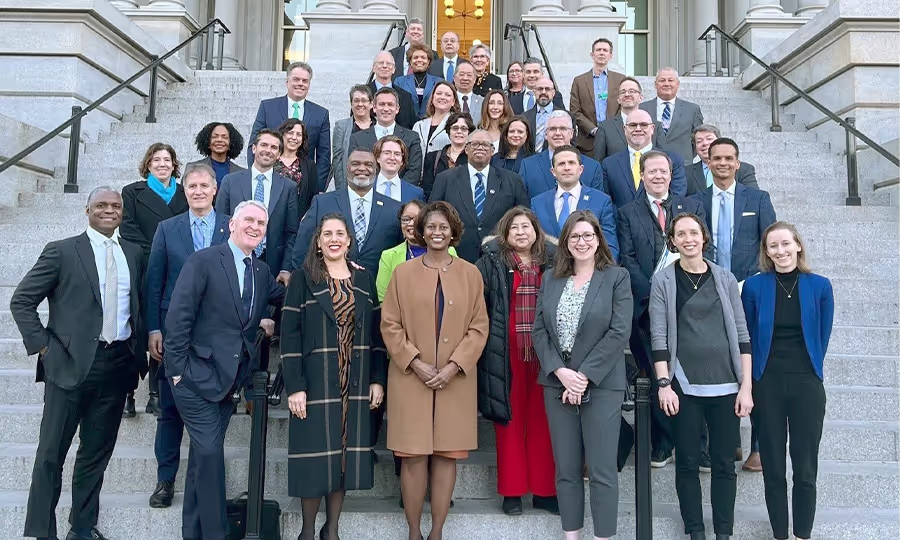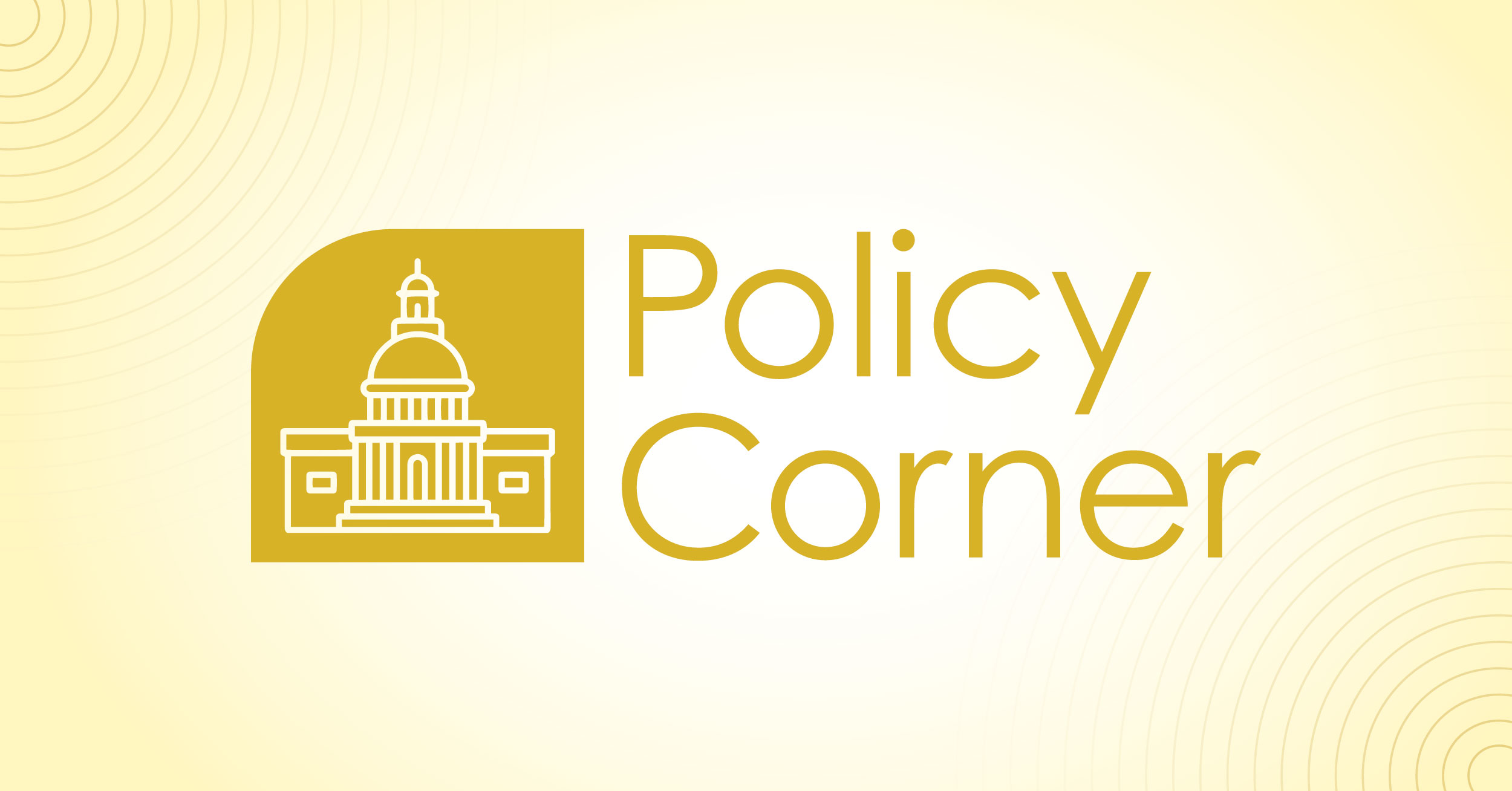
Advocacy
With 30 years of zero-emission deployment experience and project success, CTE stands as the foremost non-profit in environmental advocacy for zero-emission transportation.

Advocacy Priorities
CTE advocates for public programs that advance zero-emission transportation through….
Technology Development and Demonstration
Research, Development, and Demonstration programs bridge the gap between clean technology’s conceptualization and commercialization. These programs validate and showcase the effectiveness of clean transportation technologies in real-world demonstrations. These projects build public support for zero-emission precommercial technologies.
Read more about our recent advocacy efforts:
Submitted Comments: "Zero-Emission Transit Technology Research Recommendations to the Federal Transit Administration (FTA)"→
Submitted Comments: "Recommendations to the Environmental Protection Agency (EPA) on Shaping Zero-Emission Clean Heavy-Duty Vehicles, Port Equipment, and Fueling Infrastructure Deployment Programs"→
Submitted Comments: "Recommendations and Industry Insights for Zero-Emission Rail Deployment Opportunities to the Department of Energy (DOE)" →
Blog Post: "Reflections on the State of Transit Bus Automation, and a Look to the Future"→
Dedicated Funding for Technical Assistance and Deployment Support
Dedicated funding for technical assistance in zero-emission vehicle capital programs reduces risk and increases fleet operators’ capacity to successfully adopt new technologies. Technical assistance includes vehicle modeling, infrastructure planning, fleet transition planning, and data collection for informed deployment decisions. Such support ensures that clean transportation technologies are effectively integrated into the current fleet in a cost-effective manner.
Read more about our recent advocacy efforts:
Position Paper: "Recommendations on the Implementation of Clean School Bus Program to the Environmental Protection Agency (EPA)"→
Advocacy Letter: "Proper Implementation of the Federal Aviation Administration’s (FAA) Voluntary Airport Low Emissions Program (VALE)"→
Fleet Transition Planning
Fleet transition plans evaluate the feasibility of zero-emission technologies and provide fleet operators with a comprehensive framework to make informed decisions regarding the deployment of zero-emission vehicles and infrastructure. These blueprints consider service requirements, energy demands, procurement schedules, infrastructure requirements, and operating and maintenance costs while incorporating input from key community stakeholders. Allocating funds to develop and regularly update these plans guarantees that service and infrastructure needs are efficiently met, resulting in smooth and cost-effective transitions to zero-emission vehicles.
Read more about our recent advocacy efforts:
Blog Post: "Zero-Emission Transition Planning: Arriving Soon at US Airports"→
Position Paper: "The Need for Electric School Bus Fleet Transition Planning"→
Blog Post: "USPS Fleet Electrification: Plan First, Deploy Second"→
Submitted Comments: "Response to the United States Postal Service’s Supplemental Environmental Impact Statement Regarding the Need for Fleet Transition Planning"→
Workforce Development Resources
Effective coordination of zero-emission transportation workforce development resources is imperative to support and expand the existing workforce. The transition to a zero-emission fleet necessitates a paradigm shift in fleet operators' approach to deploying, operating, and maintaining vehicles and infrastructure. Sufficient and appropriate training resources are critical to ensure a seamless and equitable transition.
Read more about our recent advocacy efforts:
Position Paper: "Recommended Adjustment to Workforce Development Funding for Low or No Emissions Vehicle Program"→
Resilient and Sustainable Infrastructure Planning, Coordination, and Deployment
A resilient and sustainable infrastructure network is vital for the effective deployment and operation of zero-emission vehicles. Fleet operators rely on infrastructure to provide mission-critical services, underscoring the need to design it in a cost-effective manner to limit the risk of downtime. Resilient and sustainable infrastructure instills confidence in fleet operators while minimizing the environmental impact of charging and refueling stations.
Read more about our recent advocacy efforts:
Submitted Comments: "Recommendations to the California Public Utilities Commission (CPUC) Regarding Establishing Energization Timelines"→
Hydrogen Ecosystem
Both battery-electric and hydrogen fuel cell technologies are essential to decarbonize the transportation sector. However, the current high price of hydrogen and fuel cell technologies renders them cost-prohibitive for some fleet operators. Achieving economies of scale can lead to cost reductions, thereby enhancing accessibility and affordability of zero-emission technologies for both fleet operators and individual consumers.
Read more about our recent advocacy efforts:
Submitted Comments: "Recommendations to the Internal Revenue System (IRS) Regarding Section 45V Credit for Production of Clean Hydrogen"→
Advocacy Letter: "Support for Senator Coon’s (D-DE) Hydrogen for Trucks Act of 2023"→
Submitted Comments: "Recommendations to the Department of Energy (DOE) Regarding Demand Side Support for the Regional Clean Hydrogen Hubs Program"→
Submitted Comments: "Recommendations to the Department of Energy (DOE) Regarding Implementation Strategy for the Regional Clean Hydrogen Hubs Program"→
Position Paper: "Hydrogen Fuel Cell Electric and Battery Electric Vehicles are both Necessary to a Zero-Emission Future"→

"Through the development and application of advanced technologies, CTE helps connect innovative thinkers, create jobs in emerging sectors, and reduce our dependence on foreign fuel sources."
CTE’s Policy Advisory Board
We collaborate with leading industry experts on our Policy Advisory Board to propel the zero-emission industry forward.
John D. Porcari
John D. Porcari is a nationally-recognized public and private sector infrastructure leader, delivering some of America’s most challenging projects and driving the adoption of equitable, community-serving infrastructure policies and projects at the local, state and federal levels. John is Managing Partner of 3P Enterprises and serves on the board of directors of STV Inc., a leading national infrastructure engineering, environmental, and planning firm, as well as Vantage Airport Group, which operates 10 airports worldwide and is delivering the new world-class LaGuardia airport. John previously served as Deputy Secretary and Chief Operating Officer of the United States Department of Transportation in the Obama-Biden administration. As Deputy Secretary, John led a series of policy, process and financial reforms to expedite the delivery of infrastructure projects throughout the US. Prior public sector leadership positions include twice serving as Secretary of the Maryland Department of Transportation, America’s only state-level DOT that incorporates statewide transit, highway, port, aviation, bridge & tunnel authority and motor vehicle licensing functions.

Zach Kahn
Zach Kahn is a Senior Strategist in the Public Policy Group at Orrick. Before joining the firm, he held several leadership roles in the clean transportation sector, including Senior Managing Policy Advisor at Tesla; Director of Government Relations, North America, at BYD Motors; and Vice President of Business Development at WAVE. Zach has served on the Board of Directors for the Center for Transportation and the Environment since 2018. He holds a law degree from Cardozo Law School and a BA from Tufts University.

Peter DeFazio
Congressman DeFazio served as a member of the House Transportation & Infrastructure (T&I) Committee since he first entered Congress in 1987. In 2019, DeFazio was elected to the position of Chair of the House Transportation & Infrastructure Committee, which has jurisdiction over the Coast Guard, highways and transit, ports and water resources, railroads, aviation, and economic development. During his tenure on the Committee, he served as Chairman or Ranking Member of four of the six subcommittees: Aviation, Coast Guard and Maritime Transportation, Highways and Transit, and Water Resources and Environment. He authored and passed in the House the Moving Forward Act.

Steve Wallauch
Steven T. Wallauch joined Platinum Advisors in 2012 through the merger of Suter, Wallauch, Corbett, & Associates (SWCA) with Platinum Advisors. He was a principal with SWCA for over twenty years and is recognized as a leading Capitol specialist in transportation policy and public transit issues. Other areas of expertise include municipal planning, local economic development, water district policy, public works policy, and public infrastructure finance. In addition to his legislative activities, Steve works extensively with the California Transportation Commission, Caltrans, and the California Air Resources Board in the interests of his clients. He represents client policy issues at the California Energy Commission and Water Quality Control Board. He is the primary liaison with statewide associations such as Transportation California, the Self-Help Counties Coalition, the California Transit Association, the League of California Cities, and the California State Association of Counties on public works issues.

Christa Lucas
Christa Lucas is Senior Vice President, Government Affairs, Public Policy, and Advocacy for the National Business Aviation Association (NBAA) where she oversees NBAA’s outreach to U.S. Congress, the federal administration, state and local governments, the aviation community, and grassroots programs. On behalf of NBAA, she leads the Advanced Air Mobility Roundtable, which provides a forum to develop positions and industry consensus on legislative and regulatory challenges and opportunities including airport access, airspace management, local community engagement and other critical priorities. Ms. Lucas previously served as associate administrator for airports at the Federal Aviation Administration (FAA) and as deputy assistant secretary for aviation and international affairs at the U.S. Department of Transportation. She also served as the legislative director to Representative Jerry Costello (IL) and was professional staff on the House Aviation Subcommittee, which Rep. Costello chaired. She managed the legislative agenda and handled responsibilities related to the House Transportation and Infrastructure Committee.

Shannon Hines
Shannon H. Hines joined Textron in February 2022 as Textron’s Senior Vice President – Government Affairs & Washington Operations. She is responsible for leading Textron’s Washington-based government affairs activities, managing the corporate strategies and activities that maximize Congressional and Executive Branch support for programs and issues of interest to Textron and its business units. Hines joined Textron following a career on Capitol Hill. She was most recently Republican staff director for the Senate Appropriations Committee. In this role, Hines served as chief advisor to Sen. Richard Shelby of Alabama and was the primary liaison between the Appropriations Committee and Senate and House leadership, the White House and federal agencies. Hines previously served as staff director for the Senate Rules and Administration Committee, senior professional staff to the Senate Banking, Housing and Urban Affairs Committee and Republican staff director for the Senate Subcommittee on Commerce, Justice, Science and Related Agencies Appropriations. She has also served as chief of staff and legislative director for Senator Shelby. She received her B.A. in Politics from Wake Forest University.

Dan Raudebaugh
As Executive Director, Dan Raudebaugh has dedicated the last 30 years to fostering environmental and energy sustainability and creating jobs within US emerging technology sectors. He has developed, secured funding for, and managed a varied portfolio of cost-shared research, development, demonstration, and deployment projects exceeding $1.5 billion. Mr. Raudebaugh leads a staff of experienced engineers and project managers who are committed to improving the efficiency and sustainability of US energy and transportation systems. Mr. Raudebaugh holds a Bachelor of Mechanical Engineering degree from Georgia Tech.




















